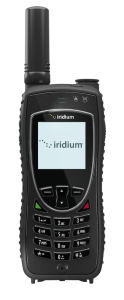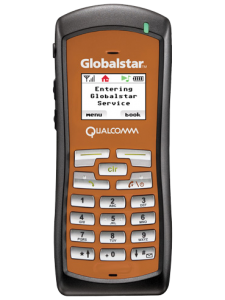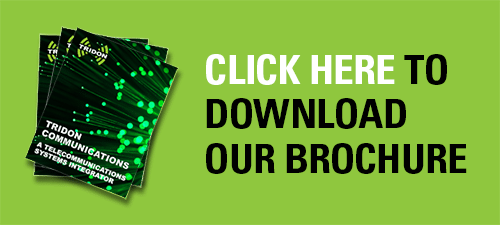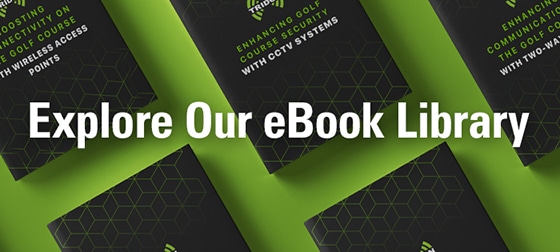Need a satellite phone?
Contact Us, and we’ll get you set up.
Common Myths About Satellite Phones
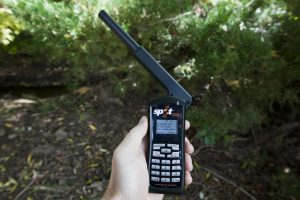
So, you’re thinking about getting a satellite phone. Your job (or recreation) has you driving, hiking, ATV-ing or snowmobiling well outside the range of anything resembling a communications tower. That being said, you still want to be able to contact home or head office in Edmonton or Fort McMurray so you can provide updates and let people know you’re safe. Smart decision and a satellite phone is an excellent tool to make that happen.
There are phones we can recommend, but before you commit to anything, it’s important that you do some research into what’s out there and what a satellite phone can actually do for you. Think about what you want to get out of your investment. Having that list of priorities will make finding the right gear much easier. But first, the research.
Step One in that process is dispelling the myths and rumors surrounding satellite phones.
Myth #1: Satellite Phones and Smartphones Communicate in the Same Way
Not true. When we say communicate, we mean one device to another via the infrastructure that supports them. To establish a connection, cellular devices like smartphones rely on land-based communications towers with the necessary infrastructure installed. By comparison, sat phones rely on Satellites orbiting Earth to send and receive signals. The difference means that a satellite phone is more mobile and can transmit and receive signals in places smartphones cannot.
There is a trade-off, though: the sheer distance signals have to between satellites and sat phones can result in a slight delay. To callers, it’ll sound like people are taking longer than usual to respond. The truth is, the signal just has farther to travel. Be prepared for that delay and practice using your satellite phone by calling a friend’s landline and having a conversation. You’ll learn how long the delay really is and how to adjust your conversation so it flows smoothly.
Myth #2: Satellite Phones Will Work During a Power Outage
Not necessarily. The infrastructure that supports cellular phones and landlines relies on a power grid. Should the power go out for whatever reason and that infrastructure fail, those phones will also stop working.
However, satellite phones are somewhat dependant on the power grid, too. Yes, they transmit and receive signals via orbital satellite, but there are Earth-based routing stations that redirect calls to the intended recipient. If a base station is impacted by a power outage, then sat phone calls can’t be routed to the landline or cellular phone you are trying to reach.
Myth # 3: Satellite Phones Won’t Work Indoors or Under Cloud Cover
Not entirely false, but close. Satellite phones work best when used outdoors on clear, cloudless days. This way, there is nothing interfering with the sat phone’s line of sight to the satellite itself. But modern antennae are still powerful enough to pick up a signal even through barriers like a structure or during an intense storm.
Myth #4 Satellite Phones Are Just for Voice Communication
See that satellite phone that looks like it comes with a small briefcase? It’s fair to say that this model was just for voice communication because it was. However, it hasn’t been in circulation since the 1980s.
The images right below look more like what you can expect from today’s technology.
Iridium Extreme 9575
The phone on the right is an Iridium Extreme 9575. In addition to voice communication, it provides text messaging and email along with GPS, online tracking and Google Maps services. It’s built for use in rugged conditions and it’s compact. Unlike the 1980’s model seen above, this offers the kind of connectivity you need when you’re working or playing hundreds of kilometres from anywhere, and it enables you to communicate the way you want to.
Globalstar GSP 1700
The phone on the left is the GSP 1700 from Globalstar. Like the Iridium Extreme, the GSP 1700 is compact and built for rugged use in harsh environments. It offers SMS messaging, too, along with a voicemail feature, making it an excellent choice for people working from the field. And the phone can be programmed to allow for any key to be the ‘Answer Call’ key, a big benefit for someone trying to pick up the call in a hurry.
All this being said, the more feature-rich equipment will come with a higher price tag. So, review your communication needs. Make a list of the must-have features and the nice-to-have add-ons. Review your budget and decide accordingly.
The same goes for satellite phone plans. Looking at the features of a device is only part of the research process. Make sure the phone you want is supported by the plan you are going with to avoid surprises. Again, it’s a matter of balancing the necessary, the nice to haves, and your budget.
Myth # 5: You Have to Buy it to Use It
Nope.
Many of our customers need communication tools for a short- term project or week-long, remote or rural adventure. If these only come up once a year, then buying a satellite phone may not be the ideal option, financially speaking. That’s why we rent them, too.
As for minutes, you’ll only pay for what you use when you rent your satellite phone from Tridon. That means you don’t have to pre-purchase airtime. If you only use 15 minutes of talk time on your rental phone, that’s what you’ll pay for when you return it. If you rent the phone as a backup communication tool and don’t use any minutes, then all you’ll pay for is the rental of the phone itself.
Getting Started
Dispelling myths, rumors and misunderstandings is one thing; deciding on a satellite phone and plan is quite another. Do your research and find the package that works for you. If you have questions, don’t hesitate to Contact Us. Tridon has a team of Client Support Specialists that have been working with sat phones for years. They know the ins and outs of the technology and what questions to ask. Put all those together, and you’ll end up with the equipment that suits your needs.
Tridon is a full solution Telecom Systems Integrator with CSA certification and licensed by APEGA. Our Engineering, Service and Tower Divisions collaborate with customers to build engineered solutions including communications systems design, tower inspections and co-location, wireless broadband, fiber optic cabling, site security, and two-way radio communication.


